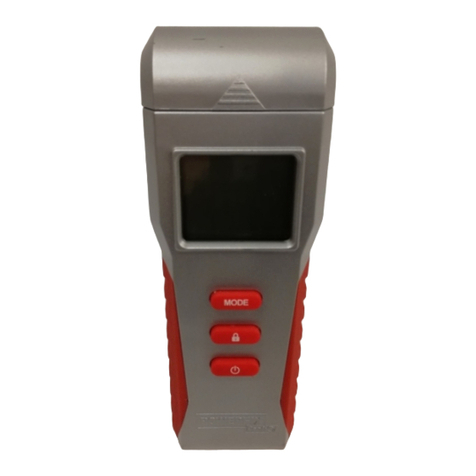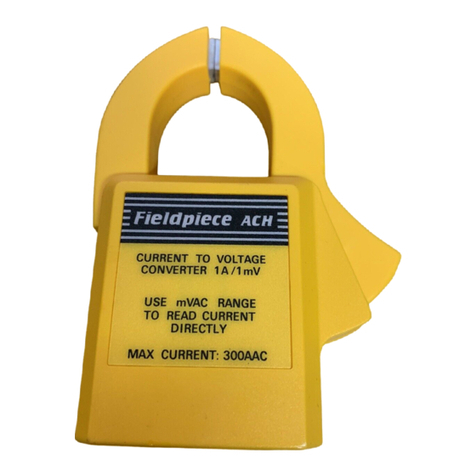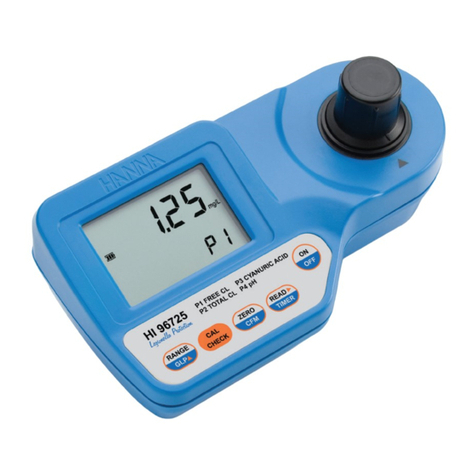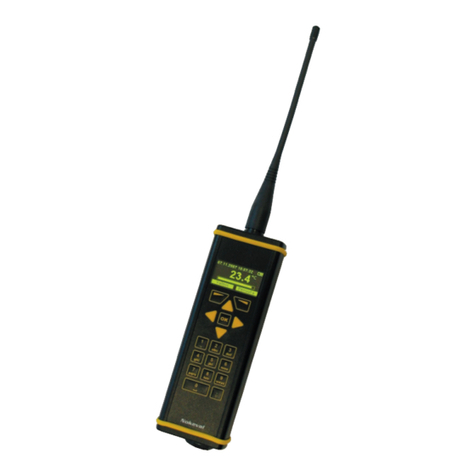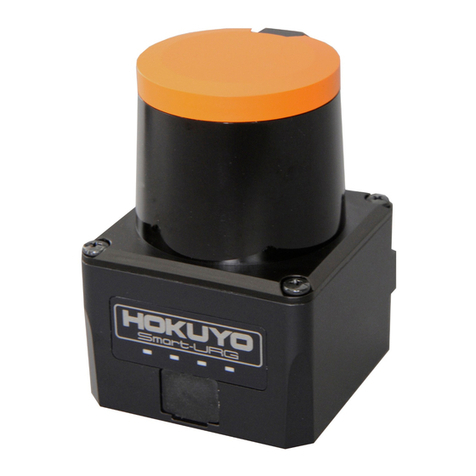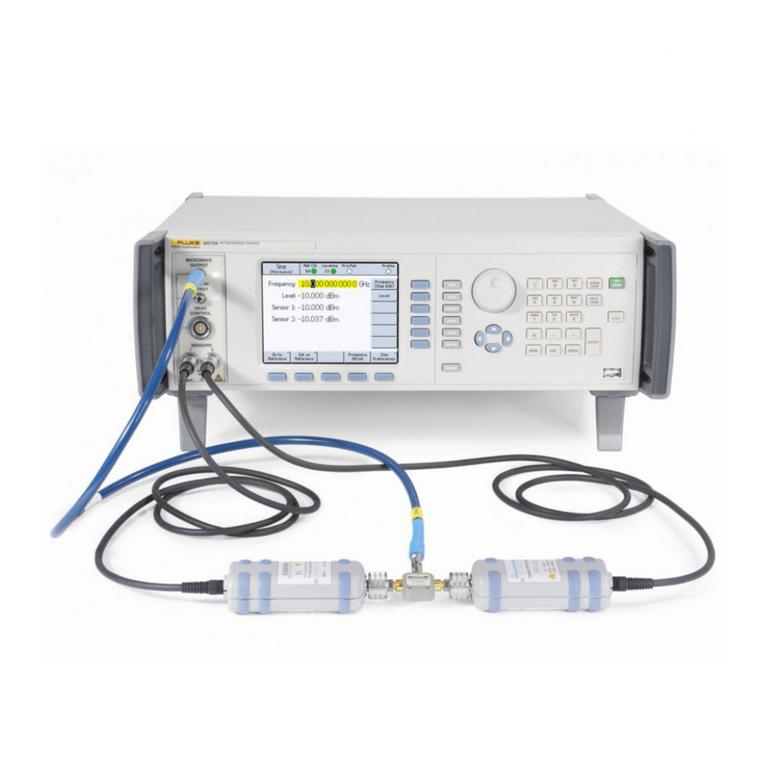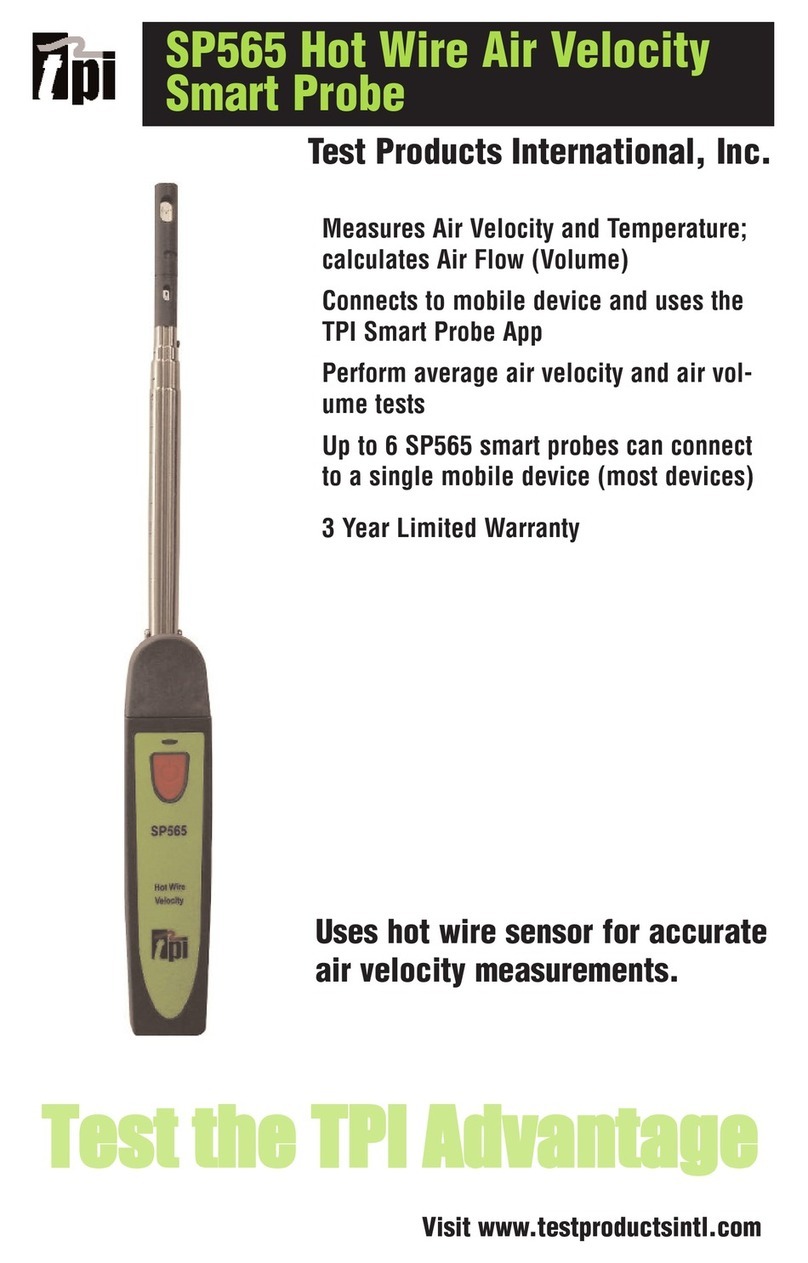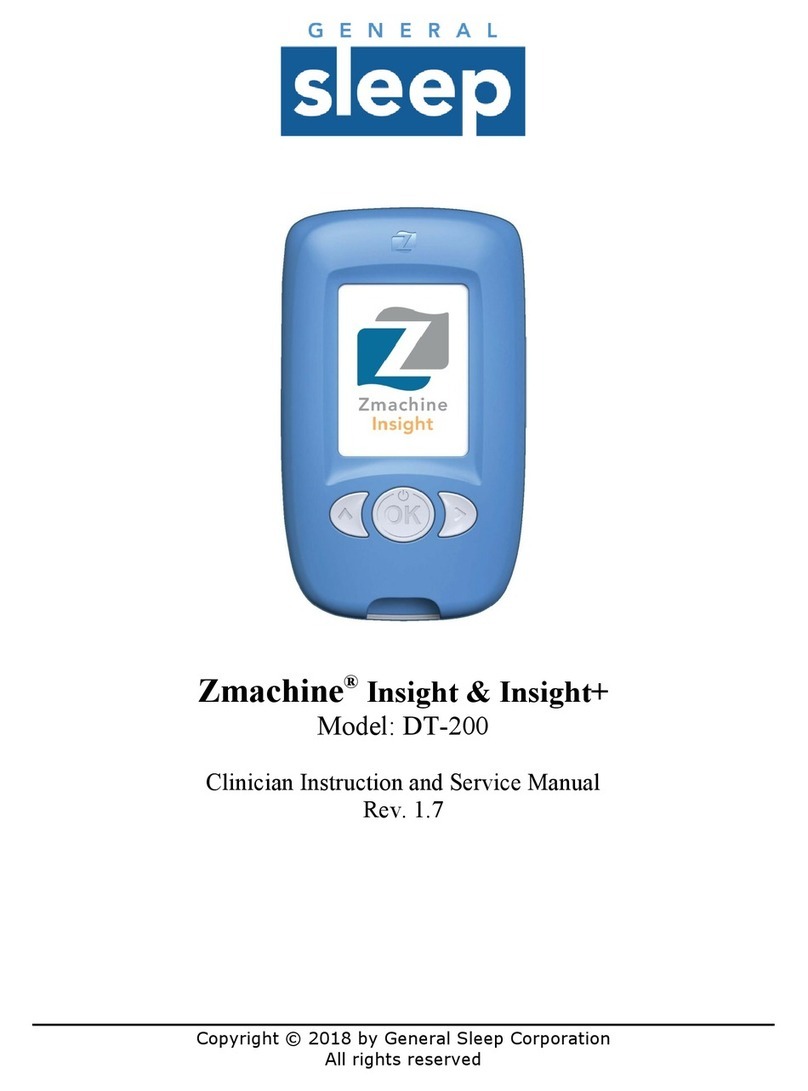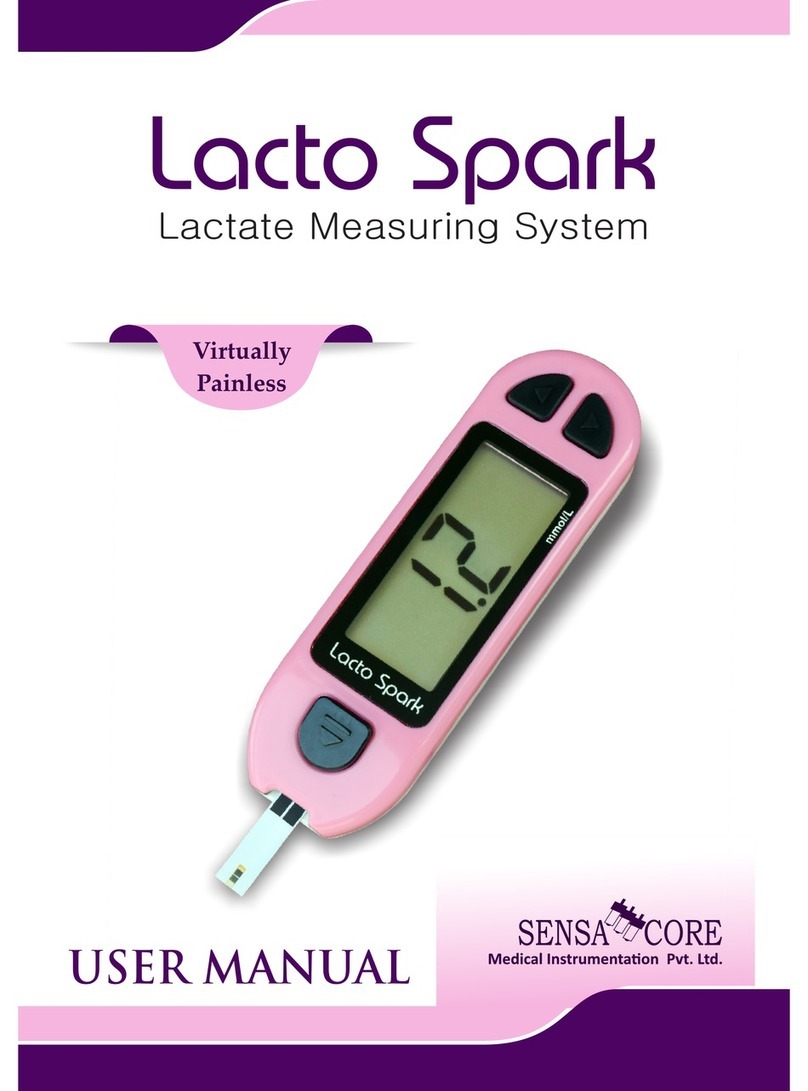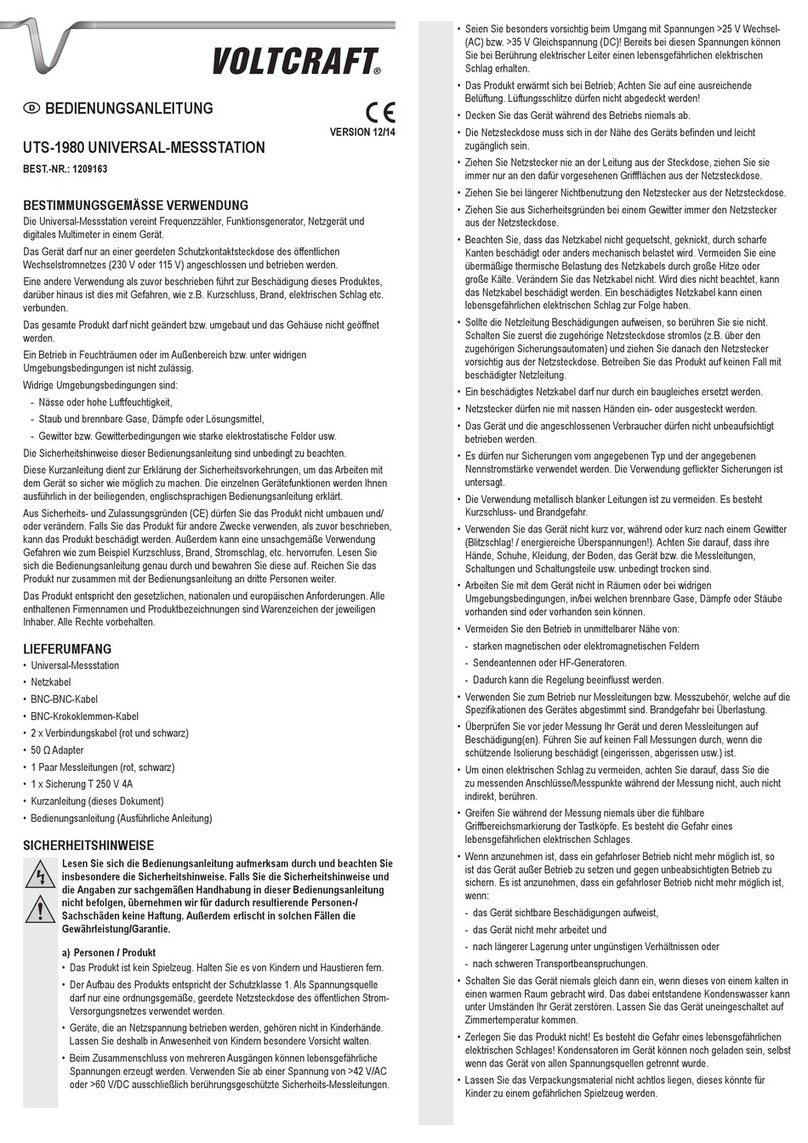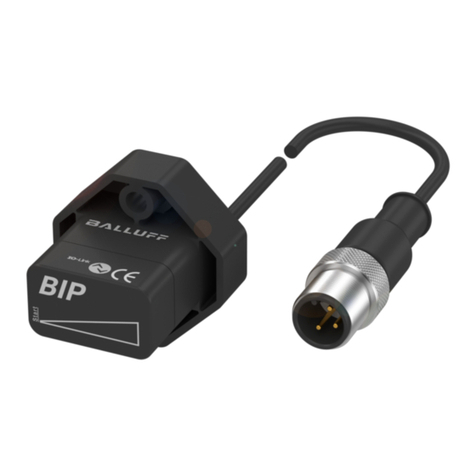CMM 100 : INSTALLATION, CALIBRATION AND OPERATION
8
2.5 Excess Moisture Content Alarm (Harvesting)
If the moisture content exceeds the preset threshold, the display flashes
continuously and the alarm beeps every 30 seconds.
NOTE: If fitted, the (optional) external audible alarm unit will operate in tandem with
the instrument internal buzzer.
The alarm will continue until either,
(i) the moisture content decreases to at least 2% below the alarm threshold for
at least 3 seconds.
(ii) the alarm is cancelled by pressing any key..
NOTE: To change the Moisture Content Alarm Threshold, please refer to section
2.6.2.
2.6 Low Moisture Content Alarm (Drying)
If the moisture content goes below the preset threshold, the display flashes
continuously and the alarm beeps every 30 seconds.
NOTE: If fitted, the (optional) external audible alarm unit will operate in tandem with
the instrument internal buzzer.
The alarm will continue until either,
(i) the moisture content increases to at least 2% above the alarm threshold for
at least 3 seconds.
(ii) the alarm is cancelled by pressing any key.
NOTE: To change the Moisture Content Alarm Threshold, please refer to section
2.6.2.
2.6.1 Select High / Low Moisture Content Alarm option
The instrument is factory set for a High Moisture Content Alarm (for
combining). Therefore you must first set the instrument to enable a Low
Moisture Content Alarm for drying as follows.
1. Press and hold the button as you switch the instrument on, and
continue to hold for (5 seconds) until the instrument enters the calibration
mode. The instrument displays "ALAr then "25.00".
2. Press the button again to display the "HIGH" / "LO" option. By default
"HIGH" is displayed. Press the button to select "LO".
NOTE: When "HIGH" is selected, all channels default to a 25% M.C. threshold. When
"LO" is selected, all channels default to a 5% M.C. threshold.
